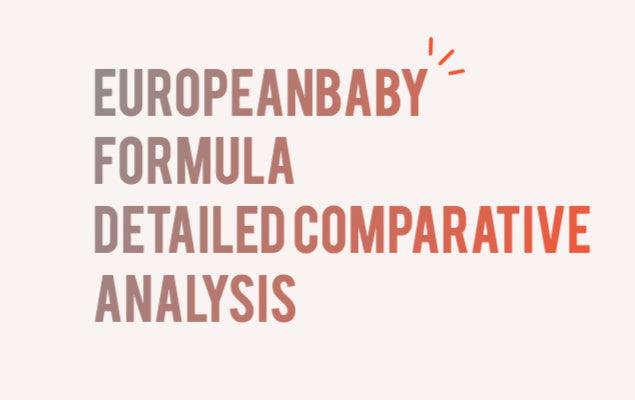Parental concern for optimal infant nutrition fuels ongoing debates over the best baby formulas. This analysis delves deep into European baby formulas, examining their perceived superiority based on stringent European Commission regulations.
Understanding European Baby Formula
European baby formulas are manufactured under the oversight of the European Commission, ensuring adherence to high standards of infant nutrition. Renowned brands like HiPP, Holle, and Lebenswert are notable for their commitment to quality and compliance with these regulations.
Key Factors Elevating European Baby Formula
- Rigorous Ingredient Standards
European formulas stand out due to prohibitive standards against artificial additives and GMOs. Such regulations ensure that these formulas are devoid of artificial sweeteners, preservatives, and colorings, offering a purer nutritional profile.
- Organic Ingredient Emphasis
The focus on organic sourcing is pivotal, with many brands utilizing milk from biodynamically farmed cows. This not only enhances the nutritional quality but also supports sustainable agriculture practices.
- Breast Milk Mimicry
Formulas from Europe are often formulated to closely resemble human breast milk, containing balanced nutrients like Omega fatty acids, prebiotics, and probiotics essential for infant development.
- Natural Carbohydrates
In contrast to some non-European formulas, European options eschew added sugars like corn syrup, relying on lactose—the natural sugar in breast milk—as the primary carbohydrate.
Potential Limitations of European Baby Formula
Despite its advantages, European baby formula has drawbacks that can affect accessibility and suitability:
- Cost and Availability
The high cost and limited availability outside Europe can be prohibitive, often necessitating online purchases which add logistical challenges.
- Lack of FDA Approval
While not FDA-approved due to differing regulatory frameworks, European formulas meet or exceed equivalent safety standards, which is an important consideration for non-European consumers.
Evaluating the Superiority of European Baby Formula
Determining the superiority of European baby formula depends on individual needs and preferences. Its composition and quality regulations make it a strong contender for parents prioritizing organic ingredients and closer breast milk analogs.
However, individual variations in infant nutritional needs and dietary responses mean that what is best for one baby may not suit another. Consulting healthcare professionals before transitioning to a new formula is crucial.
In summary, European baby formulas offer distinct advantages in terms of ingredient quality and nutritional composition, aligning with broader values of health and sustainability. Yet, the ultimate choice should be tailored to each infant's specific needs, emphasizing the importance of a well-informed decision based on professional advice.


























